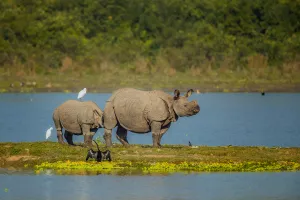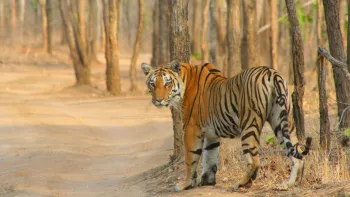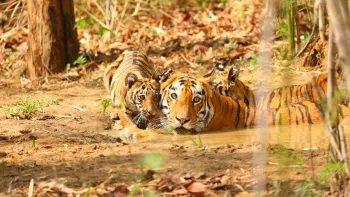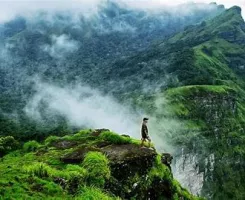Bukhansan National Park
Duration
2 to 4 Days
2 to 4 Days
Best time to visit
Apr-May, Sep-Oct
Apr-May, Sep-Oct
Theme
Hill Station, Adventure, Wildlife
Hill Station, Adventure, Wildlife
Bukhansan National Park Travel Guide
Bukhansan National Park is a natural gem located in South Korea, known for its stunning landscapes, rich history, and cultural significance. The park is famous for being a haven for hikers and nature enthusiasts, offering a perfect blend of wilderness and spirituality. With its towering granite peaks, lush forests, and ancient temples, Bukhansan National Park is a must-visit destination for anyone looking to experience the beauty of South Korea.Top Attractions in Bukhansan National Park
- Mount Bukhansan
- Baegundae Peak
- Seungasa Temple
- Uiam Rock
- Bukhansanseong Fortress
Bukhansan National Park is Famous for
Its breathtaking mountain scenery and ancient temples.Top Attractions in Bukhansan National Park
- Explore the majestic Mount Bukhansan
- Hike to the summit of Baegundae Peak
- Visit the tranquil Seungasa Temple
- Admire the panoramic views from Uiam Rock
- Discover the historical Bukhansanseong Fortress
What's Great about Travelling to Bukhansan National Park?
- Perfect destination for nature lovers
- Great hiking trails for outdoor enthusiasts
- Rich cultural heritage to explore
- Breathtaking views of the surrounding area
What's Not So Great about Travelling to Bukhansan National Park?
- Challenging terrain for beginners
- Crowded during peak seasons
- Limited facilities for tourists
- Weather can be unpredictable
Travel Tips for Bukhansan National Park
- Check weather conditions before hiking
- Carry plenty of water and snacks
- Respect the local customs and traditions
- Use proper hiking gear
Important Bukhansan National Park trip information
- Ideal Duration: 2-3 days
- Best Time to Visit: Spring and Autumn
- Nearby Airports and Railway Stations: Seoul Incheon International Airport, Seoul Station
Per Person
22,500
*EXCLUDING APPLICABLE TAXES 4.8 Ratings
( 30 Reviews )
( 30 Reviews )
Per Person
21,900
*EXCLUDING APPLICABLE TAXES 4.8 Ratings
( 30 Reviews )
( 30 Reviews )
Per Person
24,400
*EXCLUDING APPLICABLE TAXES Per Person
15,000
*EXCLUDING APPLICABLE TAXES Per Person
18,000
*EXCLUDING APPLICABLE TAXES Per Person
34,990
*EXCLUDING APPLICABLE TAXES FAQ's on Bukhansan National Park
Q1: What is the best time to visit Bukhansan National Park?
The best time to visit Bukhansan National Park is during the autumn months of September to November when the weather is cool and the foliage changes to beautiful hues of red, orange, and yellow. Spring, from April to June, is also a great time with cherry blossoms blooming. Summer can be hot and humid, while winter can be cold with snow. Consider visiting on weekdays to avoid crowds during peak seasons.
Q2: Do I need a visa to travel to Bukhansan National Park?
Most visitors to Bukhansan National Park do not require a visa for short stays. However, it is advisable to check the specific visa requirements based on your nationality. South Korea offers visa exemptions or visa-on-arrival for many countries for tourism purposes, usually allowing stays of up to 90 days.
Q3: What are the must-visit attractions in Bukhansan National Park?
Some of the must-visit attractions in Bukhansan National Park include Baegundae Peak, the highest peak in the park offering stunning views, Bukhansanseong Fortress, a UNESCO World Heritage Site, and the picturesque Bukhansan Mountain Trail. Visitors can also explore the beautiful temples like Cheonchuksa and numerous cultural heritage sites amidst the lush natural surroundings.
Q4: Is Bukhansan National Park a safe place to travel?
Bukhansan National Park is generally safe for visitors. However, it is recommended to stay on designated trails, carry necessary supplies, and be cautious of changing weather conditions. Avoid hiking alone, especially in remote areas, and follow park guidelines for a safe and enjoyable experience.
Q5: What is the local currency in Bukhansan National Park and can I use credit cards?
The local currency in South Korea is the South Korean Won (KRW). ATMs are widely available in urban areas, including near the park. Credit cards are accepted in most establishments in the park and surrounding areas, but it is advisable to carry cash for smaller purchases.
Q6: What is the local cuisine like in Bukhansan National Park?
South Korean cuisine is diverse and flavorful, offering dishes like Bibimbap (mixed rice), Kimchi (fermented vegetables), Bulgogi (marinated grilled beef), and Samgyeopsal (pork belly). Visitors to Bukhansan National Park can enjoy these delicacies at local restaurants or food stalls. Vegetarian options are available, but it is recommended to communicate dietary preferences clearly.
Q7: What transportation options are available in Bukhansan National Park?
Transportation options in Bukhansan National Park include public buses, taxis, and private cars. Visitors can take a bus or taxi to the park entrance and then explore on foot. There are also shuttle buses available within the park for easy access to different trails and attractions. Renting a car is convenient for those who prefer to explore at their own pace.
Q8: Are there any cultural norms or etiquette I should be aware of when visiting Bukhansan National Park?
When visiting Bukhansan National Park, it is important to respect local customs and etiquette. Remove your shoes before entering temples or traditional houses, bow slightly when greeting others, and avoid pointing with your fingers. It is customary to wait for the eldest person to start eating at a meal. Do not touch someone's head or pass objects with one hand. Learning a few basic Korean phrases like "hello" (annyeonghaseyo) and "thank you" (kamsahamnida) can also be appreciated by locals.
Q9: I am a travel agent. How can I buy travel leads of Bukhansan National Park?
Register yourself as a travel agent at agents.tripclap.com and then you can buy travel leads to Bukhansan National Park once your account is approved. For more details contact our support team at +91-8069186564 or support@tripclap.com
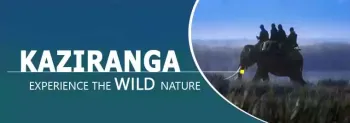
![Haridwar , Jim corbett & Nainital 5N/6D (500131) [based on 16 pax]](https://static.tripclap.com/uploads/package/350X200/1757487356-1757487356-9820e.webp)
